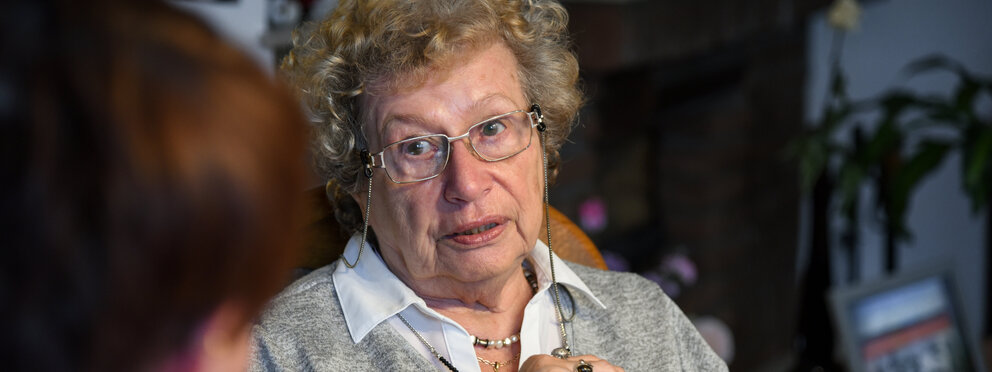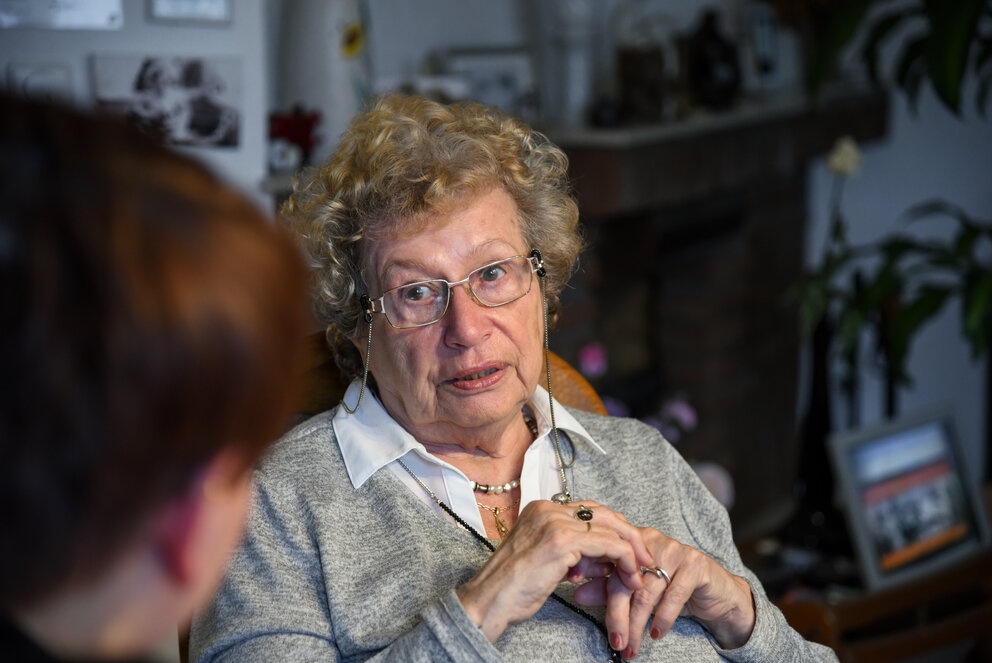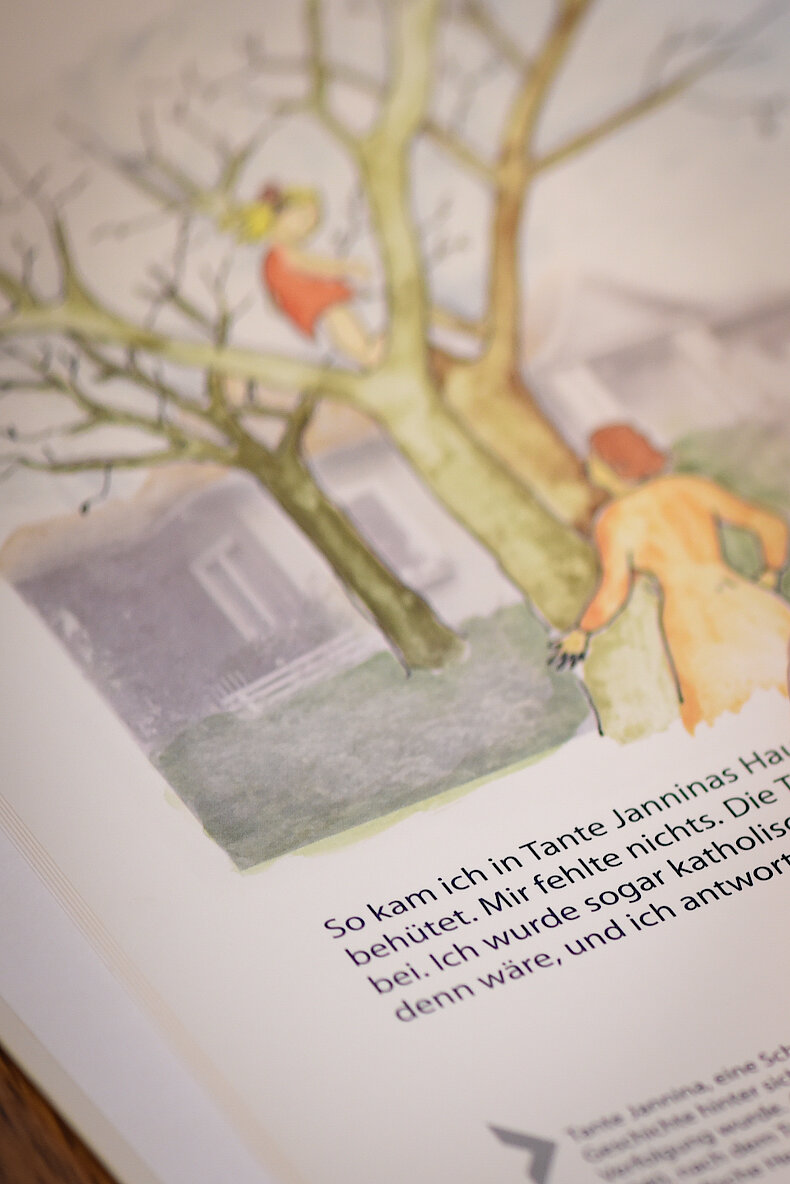
Tamar Dreifuss
About Tamar Dreifuss
Tamar Dreifuss was born in Vilnius, Lithuania, in March 1938. She and her parents were relocated by the Soviet army in 1940. The following year, Tamar moved in with an aunt she had never met before and lived separately from her parents for a year and a half. Her mother finally reunited with her in 1942 and together they went to the Vilnius ghetto. In 1943, her father was the first to be deported and murdered by the Nazis. Under the manipulative pretence of being allowed to follow the men, the women and children were also persuaded to leave. After several failed escape attempts during the deportation, Tamar and her mother were placed in the Tauroggen transit camp in 1943. They managed to escape through a trick. After fleeing in 1945, they managed to survive in Lithuania, with their mother working on various farms. In the same year, they went to visit Tamar's aunt in her house in Vilnius. Her father and most of the other men did not return. After she was unable to find a permanent home in Lithuania, Tamar lived with her mother, her aunt and her cousin for three years in the Landsberg DP (Displaced Persons) camp in Bavaria. In 1948, they finally decided to emigrate to Israel. Tamar spent her youth here and met her husband. In 1959 they married in Germany, where they have lived ever since. Tamar had a son in 1964 and a daughter in 1969. Throughout her life, Tamar unsuccessfully pursued the question of how her father died.
"And that's why, when I tell my story, it's not just a reminder, it's also to show that there were brave people there. Not everyone went to the abattoir so helplessly, there were many who put up a fight."

A picture to live on
Jetta Schapiro-Rosenzweig, Tamar's mother, published their shared story of survival in her autobiography 'We too were in Ponar - Confessions of a Vilna woman' in the 1970s. It won an award, but was then forgotten. After her mother's death, Tamar translated the book from Yiddish into German and by chance found a small publishing house in the Eifel region, which has now published the third edition. Since then, Tamar has been travelling to schools and telling the story of herself and her family. She emphasises that this would have been unthinkable without her mother's book.

Our encounter
She tells us that she's dressed up because we have a photographer with us. She immediately tells us about her concerns about a memorial at Cologne's main railway station, which has been moved to a place where it is easily overlooked: "You have to do something about it!"
This is also how we experience her in conversation: committed, energetic, very determined and humorous; a person who takes her life into her own hands. She shares her story, which is closely linked to that of her mother Jetta Schapiro-Rosenzweig, very sensitively and with the occasional pause.
Following our interview, Tamar Dreifuss tells us about the projects she will be involved in in the near future and we realise once again how important it is to her to get involved and reach out to young people in particular.
She certainly got through to us with her friendly, open manner.
